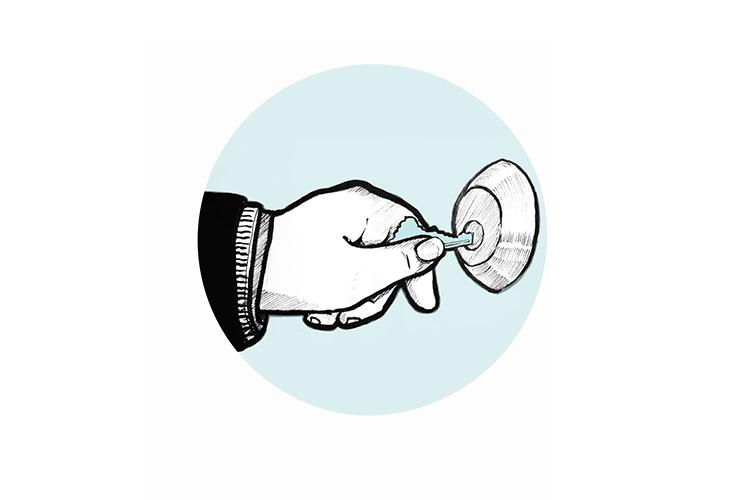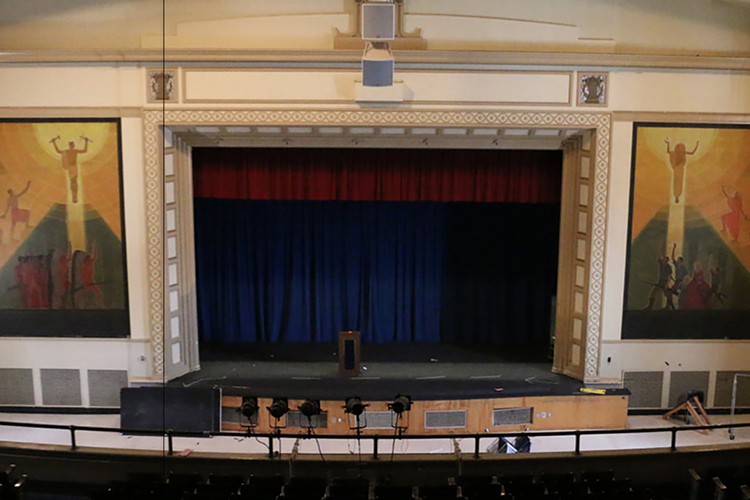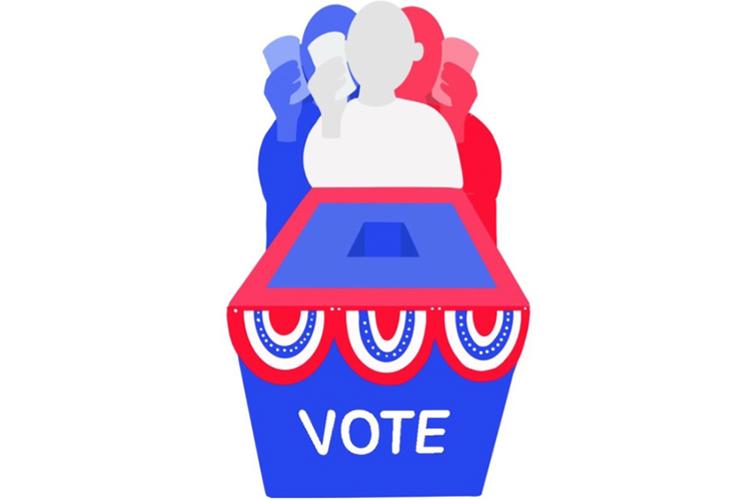
I – Regret
I only come home during the winter. I go back for five days, we pretend we are fine, and that every breath doesn’t hurt, coming in and going out. And then I’m gone.
It doesn’t feel right when I step out of the airport. There is no settling, no sigh of relief. No tearful, comforting hugs because no one ever comes to pick me up. It’s not hateful. Just inconvenient. For them, not for me.
The taxi smells sickly sweet, and someone on the radio is gushing about mattress sales. The traffic, the scenery, the life; it’s all the same, but none of it feels familiar. It never does. “Familiar” comes from “family,” and family is complicated and difficult and painful, and these trips are supposed to be simple. So no. It’s never familiar.
I mumble a “thank you,” as the taxi rolls to a stop outside of the yellow house I grew up in. My gut twists. Five days, I remind myself, biting my lip and pushing myself forward.
My shoes thump against creaky wooden planks. It sounds like running to catch the bus before school, muffled arguments from inside the house, iced tea in the sun every summer, paint-covered hands when Mom thought the porch was getting too faded.
I push the key into the lock — my key, the one I’ve had since sixth grade — and the heavy clunk is the first satisfaction I’ve felt since I got here. Door closed, keys in the basket, shoes by the coat rack, swallow back the lump rising in my throat. This is routine.
I stop in the shadowed doorway of the kitchen. My parents, brother and sister are gathered around the table. It isn’t loud, but it isn’t quiet either. Mason is talking about how someone switched out all of the whiteboard markers with permanent markers at school, and they are laughing. Part of me wants to turn around and go back for my keys and my shoes and the taxi.
But then I make eye contact with Sasha. She’s sitting on the other side of the table, only partially listening to Mason. Her eyes widen when she sees me before breaking into a smile. She’s lost her first tooth. At least I think it’s her first.
“Cassie’s home!”
There is chaos in feigned excitement; the overcompensation is obnoxious, painful. There are moments when I stop breathing, afraid of human movement disrupting the delicate theatrics we have built. The skin on my cheeks feels like it’s straining; this smile does not reach my eyes, and maybe that’s why we don’t look at each other straight on.
Sasha eagerly gives up her seat next to our brother, and she clambers into my lap even though she’s far bigger than she used to be. She and Mason immediately launch into a detailed description of a movie they just saw last weekend. My parents are quiet, aside from the occasional polite laugh from my dad.
“You cut your hair!” One of my parents says that every year. Sometimes I haven’t. I always nod, smile and tuck it behind my ear. Routine.
This is what returning feels like.
It’s the third day. I didn’t bother unpacking, but Sasha has decided to take everything out of my suitcase. She is begging me to try everything on for her; Mom sits on the edge of the bed, hands folded neatly in her lap. Her foot is bouncing a bit too fast for it to be subconscious.
Sasha finds the college sweater I buried deep in my suitcase and tugs it over her head. The sweater I brought not to wear, but to keep me grounded on this trip.
I swear Mom winces when Sasha turns around, blocky letters splayed across her stomach, giggling uncontrollably at how long the sleeves are. I can’t help but smile. Her contagious laughter is like fresh air after a too-long plane ride.
And yet. My mom still won’t look me in the eyes, even after two years, and Sasha is the only one who has made an effort to have a full conversation with me in the past three days.
“Sasha! Clean up your LEGOs please!” My dad calls for her from another room. She gives me a bright smile — don’t move a muscle — and scampers off, flapping the long sleeves like bird wings.
The silence is heavy. Unspoken apologies and frustrated, age-old accusations sit on the tip of my tongue. I bite down on the inside of my cheek to keep them from spilling out. I wonder what my mom is thinking.
Her hand twitches as she rises, as if she wants to reach out to me. But she leaves without a glance, and I’m alone.
I can’t help but stop on the porch and take a shuddering breath of cold air, though I can see the taxi driver eyeing me. I am leaning on my suitcase, gripping the handle so hard my fingers begin to ache. It never fails to surprise me, how difficult it is to breathe in this town.
There is a glow coming from the house across the street, lighting up the whole block. Christmas tree in the window. Fake icicle lights lining their gutters. It is cliché, and yet-
There is a family. A man lifts a little boy into the air, visibly laughing as the boy strains his short arms to place a star on top of the tree. The woman standing next to the man starts clapping and kisses the boy’s head. They are beaming, caught in a warm radiance I can barely remember.
It is days of watching that family before I drag myself off the porch and to the taxi. The driver looks impatient when he opens the trunk. I don’t blame him. I have to repeat myself when he asks for the address. He can’t hear me over the radio.
As the taxi moves forward, the family flashes in my mind. I turn in my seat, ignoring the discomfort in my shoulder from the seatbelt. The faded porch slides farther and farther away, empty.

II – Revival
There’s a cardboard box on the front porch, but she can’t remember ordering anything. She hoists the box onto her waist to unlock the door. She sets the box down and in her rush to get out of her scrubs, forgets that it’s there.
The box stays in the entryway, waiting, until Netflix asks if she’s still watching and she drags herself off the couch. She mindlessly reaches into her pocket for her phone only to realize that she hasn’t had it since she’s been home. In the entryway, she looks under a pile of unopened mail, but spots her phone on a box. The box.
Dragging it into the living room, she slices open the packing tape with a key, not bothering to look at the return address. Inside are three leather-bound photo albums with dates embossed on their covers. Fatigued, the dates slip past her eyes. She flips them open, still convinced that the package isn’t meant for her.
It takes a few pages for her to recognize the people in the photos. One has four girls dressed in uniforms for school, girls she now realizes she grew up with. She looks closely and sees herself, a goofy smile and arms thrown around the shoulders of friends. The smile is genuine, not forced, and she closes the album in surprise. Looking at the dates, she has a sneaking suspicion of who they belong to, but cannot imagine why they were sent to her.
Pushing the album off her lap, she reaches for the box and inspects the scratchily-written address in a city she has not thought about for a long time. Trapped under a flap in the box is a piece of paper, its corner creased from the pressure of the albums.
“Ms. Fisher died two months ago. I’ve been tasked with going through her things, and yours was the only face I recognized in these albums. I’m not sure how to get in touch with any of the other children she fostered. Please pass this message on.”
She remembers the tall bookshelves where the albums sat. She places each of the albums gingerly back into the box and slides it under the end table by the couch. Picking up the remote, she presses play on the next episode.
At work the next day, the albums stay lodged in the back of her mind as she sticks a Snoopy Band-Aid on the arm of a snotty-nosed boy.
She waves at the women who work behind the front desk and pushes open the door as she heads for the elevator. Usually she would take the stairs, but today she’s unusually tired. Couches are not meant for a good night’s sleep.
Although she knows some things are better left alone, she pulls the box out as soon as her shoes are off. In a few photos she recognizes no one, in others the faces seem vaguely familiar.
But every once in a while, she sees herself. Always grinning or in motion.
There she is on her ninth birthday, a party hat on the head of each of her friends and their parents. There’s one clearly not taken by Ms. Fisher because there they stand together, hand in hand, Ms. Fisher’s smile full and red with lipstick.
She struggles to remember how she managed to look so carefree. Looking back on that time in her life today makes her depressed, and seeing the photos again, she wonders if her memories are wrong. She pushes the thoughts out of her head and heads for the shower, hoping that the hot water will wash her confusion away.
The boy on crutches hobbles awkwardly down the hall; he almost falls but at the last second catches himself and laughs. She smiles at him, the joy in the novelty of his blue cast reminds her why she chose this job over the higher paying one in the general hospital.
At home, she pulls out the last album. Looking more carefully, she wonders why she can’t remember these moments. The years with Ms. Fisher are a blur of warmth, but those aren’t the memories she thinks of as her childhood. By the last page, she’s a long-limbed, awkward teenager.
She peers closer and finally places a clear memory with the photograph, the day she left. Ms. Fisher isn’t looking at the camera but instead at her. A smile just beginning to play across her lips. She looks at herself, hair parted neatly and newly shined boots, but she’s wearing a t-shirt that looks worn and a little too small. It clearly used to be a bright red but had since faded.
Something about the color of the t-shirt strikes her, and she looks back through the album, and then the next, and then the next. She soon realizes that it must have been important to her, but can’t remember why or where it came from. All she knows is that she’s comforted by being able to watch it fade and watch herself grow out of it. Time did pass, even if she can’t remember how.
She stands in the bathroom, hurriedly throwing her hair into a bun on the top of her head, already late for work. Looking at herself in the mirror she remembers the shirt and crouches down to dig through her drawers until she finds a red lipstick, the one she’d bought for a date years ago and never wore. It was the first makeup she’d bought since she was 17. She can’t remember if she ever went on that date.
She applies the lipstick carefully and stares at herself, thinking she looks ridiculous. But then she remembers the fierce grin of her eight-year-old self staring back at her and sighs. She decides to keep the lipstick on.

III – Baggage
The man across from me has been asleep for hours now. His newspaper lays on the floor. When the train stops, he jolts awake and rubs his eyes as he reaches for the newspaper. I finished my book before the last stop and am still wide awake. Seconds later, he’s asleep again.
My nose wrinkles as I step into the train; the air is stale, somehow worse than the exhaust-filled station. My phone vibrates, and I struggle to fish it out of my pocket while pushing my suitcase ahead of me.
“Yes, Mom?” I swear under my breath as the suitcase tips onto its side.
“Yeah, I just got on the train.” I stop at the first compartment and slide the door open. There are two people in here already — an older man sleeping and a younger man wearing a hoodie — but I don’t want to struggle with the suitcase anymore.
“Yeah, I know. I’ll text you when I’m there. I know.” I hang up, hoisting the suitcase onto the overhead rack, and slump into the seat farthest from the other passengers.
I lift my head from the window when her suitcase falls onto the rack. My breath catches in my throat and I turn away, trying to calm my racing mind. From the corner of my eye, I can see her face is pinched and tired. I force myself to look back out the window. She’s the last person I expected to see.
An ache has started in my head as the train begins to move, and I contemplate finding an empty compartment later. The old man is snoring now, and his newspaper is dangerously close to slipping off his lap. I can’t see the face of the younger man, who seems determined to memorize the scenery outside. They don’t seem very talkative, thankfully.
The last time I saw her she was standing on my porch, waving as I drove away. I had thought things would work out, that she was my person. But the gaps between our phone calls lengthened and then finally stopped altogether. The words, “we should break up,” were never said aloud. The fact that I’m forcing myself to avoid eye contact makes me angry at myself and her.
The WiFi is overpriced, but I buy it anyway. As I wait for it to load, I look up from my phone, hoping the break from the screen will ease my headache.
The man by the window turns away, but not before I see his face. Immediately, images run through my mind of that same face, smiling at me, and my stomach drops. How many years has it been?
When I close my eyes, I can feel the cold from damp grass seeping into my t-shirt, and wind on my face. Whiffs of smoke from barbecues long since burnt out still lingered in the air and every time a firework exploded acrid smell invaded our peaceful moment. Her laughing face, lit by the street lamps, is frozen in my mind. That was the first night I knew I was in love with her. I didn’t tell her for months, but she always knew. I want to tell her that I never stopped.
Now, she’s so close I could reach out and touch her, but the few feet feel like a cavernous valley between us.
Seventeen years old and we are yelling at each other. I can’t remember where we were. I remember his hands running through his hair, his frustration-filled laugh, my blue dress and his orange socks. I was moving miles away, and neither of us wanted to accept it. My voice was hoarse and my throat sore from yelling, or tears or both. More than anything, I remember forgetting halfway through why we were fighting. Hoping we could forget it, go get lunch, or take a walk.
I went home alone.
I turn to look at her. She’s spinning her phone in her hand, trying to avoid eye contact. My thoughts are bouncing off the walls of my brain, trying desperately to free themselves.
I love you.
He’s staring at me when I finally look up, and the compartment feels too hot.
I don’t know how to do this.
What’s the worst thing that could happen?
I still have my copy of your house key; it’s in the dish in my apartment.
You were always too good for us.
I’m sorry I left. I never meant for you to feel like you weren’t important to me.
We used to be so happy.
It would be easy to feel like that again. With you.
The train stops and he pushes his hood off, looking dazed. I think this might be his stop. I feel like I should say something to him before he leaves, but I can’t think of anything that would justify years of silence. But when he smiles at me it’s exactly the same, and a lump rises in my throat. He stands and grabs a duffel bag from the rack; there’s an all too familiar tightening in my chest.
She’s looking at me, confused. I want to reach out, to tell her everything will be okay. But I don’t know how. I suddenly can’t remember how to put one foot in front of the other, so I stand, rooted to the floor. Part of me is scared of the train pulling out of the station with me still on–board, but the other part is terrified of what I’ll miss if I leave.
His expression reminds me of his last day when we were standing on his porch, trying not to think about the future. There’s an “I don’t want to leave” shine in his eyes and, instinctively, I reach for his hand.
I don’t look down out of fear that if I do she’ll disappear. I just hold tightly to her hand, hoping she won’t let go.



































